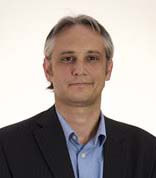
WHEN I was growing up there were around five channels on TV: the three commercial stations on 7, 9 and 10, ABC and (depending on your reception) SBS.
At most times of the day you could be certain that you could find something on one of the commercial stations that would entertain you. Yes, you had to put up with ads interrupting your nightly movie but you would put up with them to see the end of your program.
Because there was a limited number of channels, advertising dollars flowed into them like water flowing to the sea. These were the days when TV stations were relatively cashed up and, as a result, they could afford to put significant money towards creating decent programs. They were also the days when the people appearing in shows were usually professional actors.
You could skip ads if you switched over to the ABC and get some news that was more than a story about some guy who had driven his car across someone’s front lawn and lodged it in their lounge room wall.
The sheer number and variety of programs was much lower than today, but it was probably more manageable for a viewer to navigate. We largely knew what was on and when. We probably didn’t feel overloaded.
As technology advanced, more and more outlets opened up. Suddenly established media stations were not the only game in town. As the number of channels increased, whether online, pay TV or Netflix, the amount of advertising dollars going to any one station decreased. The pressure to do quick and cheap shows ramped up.
Do we remember the shift that took place when TV went from having shows filled with actors to shows filled with regular people happy to be on them just as long as they got their face on TV? The upside for the stations was that these shows were cheaper to produce than others. There was Big Brother and the like.
We have more choice than ever before. But what is the quality of that choice? Sure there are some great programs out there, but there is also a tonne of dross.
And the flow of information and noise is not limited to the small screen. In many ways, what marks the current age is information – the sheer amount of it and the speed at which it travels. More and more information. More and more data.
What is our society’s current view of information? If you asked someone “Which is better – more information or less?”, I imagine most would favour the former. But is it always the case? We are bombarded by information on a daily basis. Does it always lead us to better and happier lives? Do humans in today’s world now crave some reprieve from the avalanche of data? How do we cut through the unimportant chaff and pinpoint what is really important? I suspect that people feel like they don’t have enough time or enough quiet. In many ways we have more and more stuff. We certainly have more and more information. We seem to have less and less time.
There are many ways to seek time out from the endless noise that surrounds us. Some get out and surf. Some go for a walk or cycle. Some knit. What they all involve is focusing on one thing rather than thinking about a million things at once.
Hopefully we all have something to get us away from the static every now and then. In the meantime, good luck drinking from the fire hose.